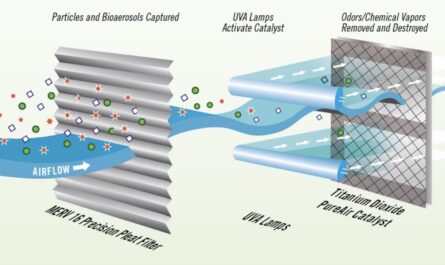In a groundbreaking discovery, researchers from McMaster University, in collaboration with ALK-Abello A/S, have identified a new type of cell that retains allergic memory. This breakthrough finding offers scientists and researchers a new target for allergy treatment and has the potential to lead to the development of innovative therapeutics. The study, published in Science Translational Medicine, has labeled this newly discovered cell as a type-2 memory B cell (MBC2).
Dr. Josh Koenig, an assistant professor from McMaster’s Department of Medicine and co-lead of the study, explains that the MBC2 possesses unique characteristics and a distinct gene signature that has not been described in previous research. The team found that allergic individuals had a significant concentration of these memory B cells specific to their allergen, while non-allergic individuals had negligible quantities, if any.
B cells are a type of immune cell responsible for producing antibodies that combat infections. However, they can also trigger allergic reactions. Dr. Koenig provides an example to illustrate this: “Let’s say you’re allergic to peanuts. Your immune system, because of MBC2, remembers that you’re allergic to peanuts, and when you encounter them again, it creates more of the antibodies that make you allergic.”
To make this discovery, the researchers designed tetramers—fluorescent molecules—using allergens like Birch pollen and peanuts. Tetramers were utilized to locate challenging-to-find memory B cells. Dr. Koenig and his team had previously developed a methodology for employing tetramers to identify these elusive cells successfully.
Additionally, the researchers leveraged samples from ALK clinical trials involving tablet sublingual immunotherapy, which allowed for the analysis of extensive quantities of IgE-producing B cells. By employing cutting-edge technologies such as single-cell transcriptomics and deep sequencing of antibody gene repertoires, the team established a direct link between MBC2 and IgE, the antibody responsible for triggering allergic reactions. This crucial context exposed the MBC2 as the cell driving allergic responses.
Despite allergies being one of the most prevalent diseases globally, the mechanisms behind their development and lifelong persistence remain not fully understood. Identifying the cells responsible for retaining IgE memory represents a substantial step forward and revolutionizes our understanding of the causes of allergies and how allergy immunotherapy, such as treatment modification, can alter the disease course. Peter Sejer Andersen, ALK’s Senior Vice President and Head of Research, emphasizes the significance of this finding and expresses gratitude to the McMaster University team for their collaboration.
The discovery of MBC2 provides a new target for allergy treatment and has potential implications for the development of new therapeutics. The findings have illuminated two potential therapeutic approaches. Kelly Bruton, who co-led the research alongside Dr. Koenig when she was a Ph.D. student at McMaster and is now a postdoctoral fellow at Stanford University, explains, “The first is targeting those MBC2s and eliminating them from an allergic person. The other option could involve changing their function and have them do something that’s not going to be ultimately harmful when the individual is exposed to the allergen.”
While further research is necessary to deepen our understanding and develop effective therapeutics, the discovery of MBC2s provides renewed hope for individuals affected by food allergies. Dr. Koenig emphasizes the importance of such discoveries in the development of appropriate therapeutics that can neutralize the right cells and halt the progression of the disease.
The study was also co-led by Niels Peter Knudsen and Allyssa Phelps. Dr. Manel Jordana, a professor of medicine at McMaster, is acknowledged by Dr. Koenig for his integral contribution to this remarkable discovery.
*Note:
- Source: Coherent Market Insights, Public sources, Desk research
- We have leveraged AI tools to mine information and compile it



